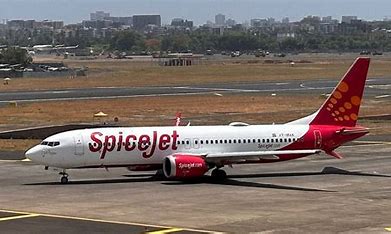Amidst the turbulent phase that the cash stripped airline Spicejet is going through, the airline in a detailed presentation recently laid out a detailed account of what actually went wrong and their future prospects.
The airline in an investor presentation highlighted the global grounding of Boeing 737 Max aircraft, the impact of the Covid-19 pandemic, and soaring fuel prices as some of the major reasons behind the financial setbacks the airline is facing.
During the COVID-19 pandemic, the global aviation industry was impacted heavily due to the grounding of their fleet which led to a crisis in the aviation industry.
Post the pandemic era, the aviation industry started to fly again and Spicejet in the initial phase post the pandemic showed a few signs of recovery but eventually, the crisis kept on brewing and finally exploded in the last couple of months.
The airline also pointed to a sharp rise in fuel prices, with Brent crude oil peaking at $120 per barrel and aviation turbine fuel prices hitting a record high in June 2022.
One of the major reasons for the crisis is the grounding of its fleet.
According to the official data, Spicejet’s operational fleet has shrunk dramatically from 74 aircraft in 2019 to just 28 in 2024.
Factors like the grounding of the remaining aircraft due to the pending dues, other financial factors, and fixed airport rental, all added to the financial woes the airline is facing.
As per the airline, it has liabilities total up to Rs 3,700 crore, which it owes to different stakeholders include suppliers, lessors, and others.
Additionally, it has Rs 650 crore in unpaid statutory dues, according to the presentation. In the last couple of months, the airline has witnessed numerous crises includes putting 150 cabin crew members on a temporary three-month furlough citing a reduction in fleet size, delays in the salaries of its employees along with aviation watchdog Directorate General of Civil Aviation (DGCA) placing it under enhanced surveillance amid concerns over its operations and others.
Future prospects
To manage the financial crisis that the airline is going through, Spicejet on Friday night said that one of its biggest aircraft lessors Carlyle has agreed to convert upto $50 million of its dues into equity. Carlyle Aviation will also increase stake in SpiceJet through equity conversion at Rs 100 per share which was earlier Rs 60 per share. The agreement allows restructuring of certain aircraft lease obligations
This move is being viewed as a step by Ajay Singh who is the CEO of Spicejet to fix all the crises and bring the airline back into the running business. As of now, Spicejet is flying across Bangkok.
Similarly, the airline has additional Traffic Rights for 17 International Destinations including Heathrow (London), Hong Kong, Abu Dhabi, Sharjah, Italy, China, Sri Lanka (Colombo), Nepal (Kathmandu), Russia (Moscow, St. Petersburg), Bahrain, Bangladesh,
Kazakhstan, Uzbekistan, Oman, Myanmar (Mandalay/Yangon), Afghanistan and Iraq.
It being said that when the situation improves and the airline starts functioning again without any disruptions, Spicejet will then target these 17 international destinations to enhance its international operational connectivity. 27 destinations across the country while two are international segments including Dubai and

